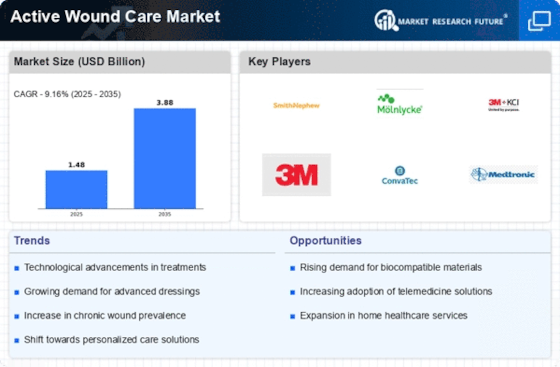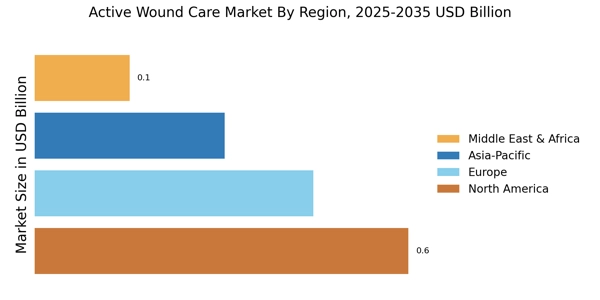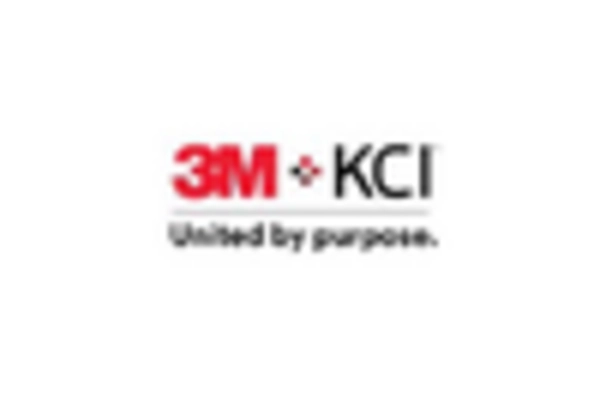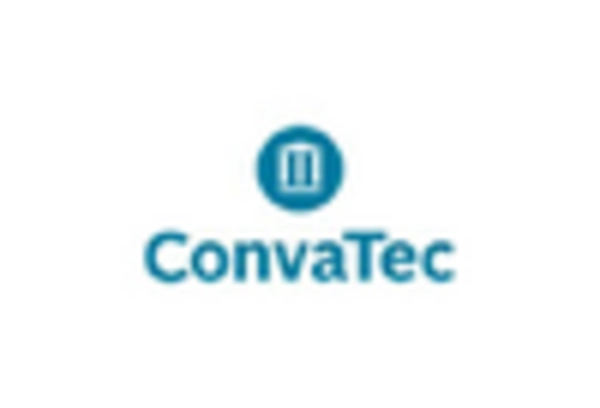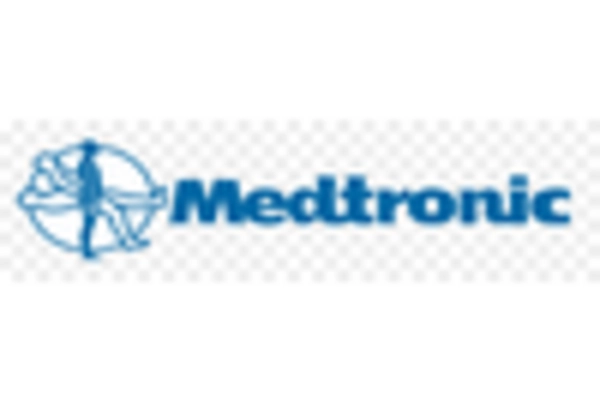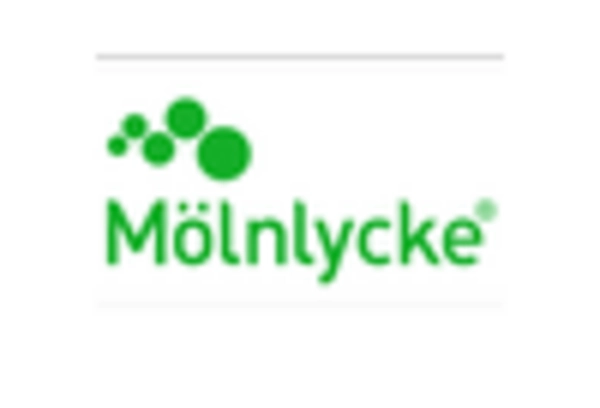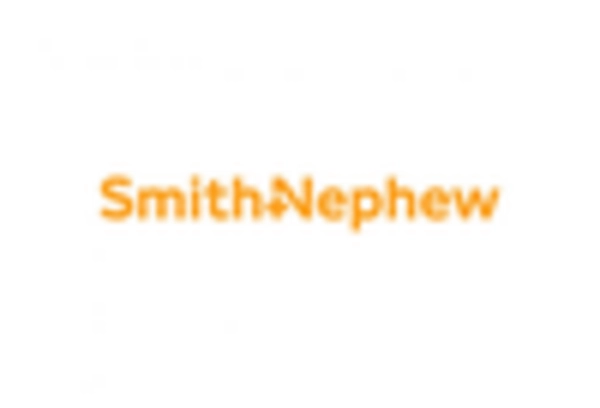Growing Awareness of Wound Care
There is a notable increase in awareness regarding wound care management, which is positively influencing the Active Wound Care Market. Educational initiatives and campaigns aimed at healthcare professionals and patients are fostering a better understanding of wound care practices. This heightened awareness is leading to earlier diagnosis and treatment of wounds, which is essential for preventing complications. Furthermore, the rise in healthcare expenditure in various regions is facilitating access to advanced wound care products. As a result, the demand for effective wound care solutions is expected to rise, thereby driving the growth of the Active Wound Care Market.
Increase in Surgical Procedures
The rise in surgical procedures globally is another significant driver for the Active Wound Care Market. Surgical interventions often lead to postoperative wounds, which require effective management to prevent infections and promote healing. With the increasing number of elective and emergency surgeries, the demand for advanced wound care products is likely to escalate. Data indicates that the number of surgical procedures performed annually is projected to reach over 400 million by 2030. This trend underscores the necessity for effective wound care solutions, thereby propelling the Active Wound Care Market as healthcare providers seek to enhance patient recovery and minimize complications.
Supportive Government Initiatives
Government initiatives aimed at improving healthcare infrastructure and access to wound care services are significantly impacting the Active Wound Care Market. Various countries are implementing policies to enhance the quality of care for patients with wounds, including funding for research and development of advanced wound care products. Additionally, regulatory bodies are streamlining the approval processes for innovative wound care solutions, which encourages market entry for new products. These supportive measures are likely to foster a conducive environment for growth in the Active Wound Care Market, as stakeholders are motivated to invest in research and development to meet the evolving needs of patients.
Rising Incidence of Chronic Wounds
The increasing prevalence of chronic wounds, such as diabetic ulcers and pressure sores, is a primary driver for the Active Wound Care Market. It is estimated that chronic wounds affect millions of individuals worldwide, leading to a growing demand for effective wound care solutions. The aging population, coupled with the rise in lifestyle-related diseases, contributes to this trend. According to recent data, the number of patients suffering from diabetes is projected to reach 700 million by 2045, which will likely exacerbate the incidence of diabetic ulcers. This surge in chronic wound cases necessitates advanced wound care products and therapies, thereby propelling the Active Wound Care Market forward.
Technological Innovations in Wound Care
Technological advancements play a crucial role in shaping the Active Wound Care Market. Innovations such as bioengineered skin substitutes, advanced dressings, and negative pressure wound therapy are revolutionizing wound management. These technologies not only enhance healing rates but also improve patient outcomes. For instance, the introduction of smart dressings that monitor wound conditions in real-time is gaining traction. The market for advanced wound care products is expected to grow significantly, with estimates suggesting a compound annual growth rate of over 6% in the coming years. This growth is indicative of the increasing reliance on technology to address complex wound care challenges.


